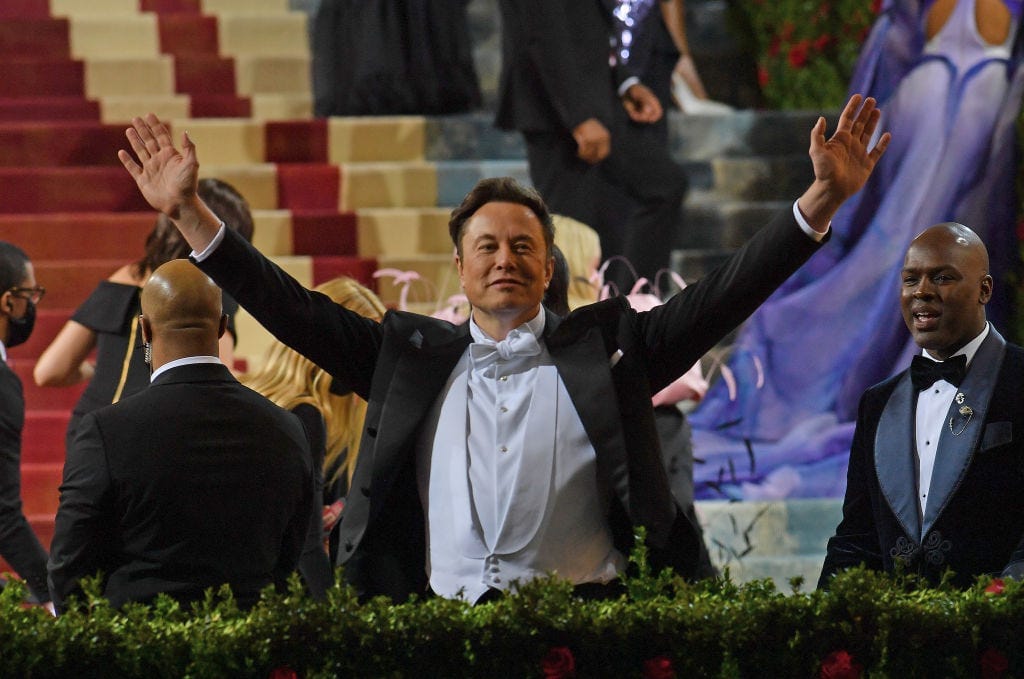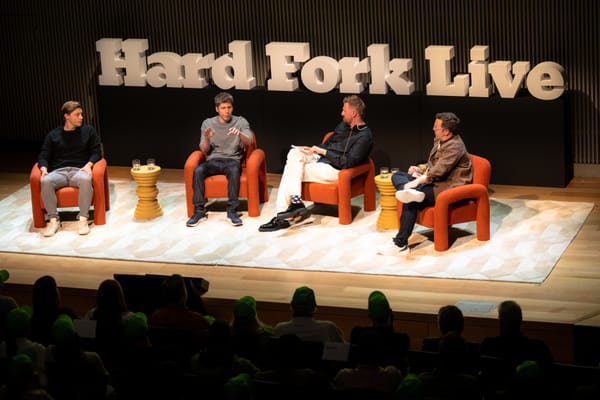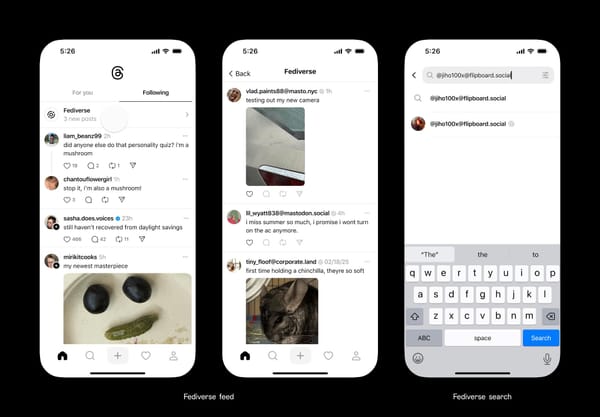Elon goes wobbly
The Twitter deal is on hold. Is he renegotiating — or backing out?

On Thursday afternoon I asked here which was likelier to fall apart — Elon Musk’s deal to buy Twitter, or the company itself. By Friday morning the answer was clear: it’s the deal.
Here are Faiz Siddiqui, Rachel Lerman and Reed Albergotti at the Washington Post:
Elon Musk tweeted early Friday that his $44 billion bid to buy Twitter was temporarily on hold as he examined the number of spam accounts on the site, sending the company’s stock down sharply.
“Twitter deal temporarily on hold pending details supporting calculation that spam/accounts do indeed represent less than 5% of users,” he tweeted, linking to a Reuters article from last week citing a Twitter filing.
Roughly two hours later, he added: “Still committed to acquisition.”
It’s not at all clear how this deal could be “temporarily on hold,” given that Musk has signed a binding contract to acquire the company. But to say the most obvious thing first, there is almost no world in which the reason for Musk’s cold feet is the percentage of bots on the service.
Musk is on record as wanting to eliminate bots from Twitter altogether; it is one of the first reasons he gave for wanting to buy the service. (The other, of course, is to permit nearly all legal speech, a goal that stands in opposition to eliminating bots, but whatever.) Musk’s opposition toward bots is understandable, though, given that for years people have been using his likeness to run various lucrative crypto scams.
One way you could value a social network is by the number of users that it has. The more people who use Twitter, the more you can show them adds and sell them subscriptions. If you’re Elon Musk, and you offer $54.20 a share to buy Twitter, part of the deal is that the company is being honest with you a bout how many people use it.
And the thing is, the company wasn’t honest about it. After Twitter’s board accepted Musk’s offer to buy the company last month, the company released its quarterly earnings statement. And one of the disclosures in those earnings is that Twitter had been overcounting its users by as many as 1.9 million accounts for the last three years.
Somehow, this was actually the second time in Twitter history that it had overcounted its users for three years.
With that kind of history, you might imagine potential acquirers doing more due diligence than usual before spending $44 billion on the company. You might hire various lawyers and advisers to dig into the financials and understand more about what you were buying. You might ask Twitter, given its history, to triple-check its arithmetic.
You might, but Musk didn’t. In fact, he chose not to review any nonpublic material about the company at all. And he signed the deal, and the deal is binding.
OK, you say, but what if Twitter massively screwed up here? Twitter has already attested, in a legal filing, that spam and automated accounts represent less than 5 percent of its user base. But say it was shockingly higher — 20 percent, say, or 30?
Even then, it wouldn’t be relevant to the deal, Matt Levine says in a must-read piece on the day’s events:
That contract does not allow Musk to walk away if it turns out that “spam/fake accounts” represent more than 5% of Twitter users. We discussed this last month, when Twitter admitted in a securities filing that it had (slightly) overestimated its daily active users for years. The merger agreement contains a provision that allows Musk to walk away if Twitter’s securities filings are wrong — and this 5% number is in its securities filings — but only if the inaccuracy would have a “Material Adverse Effect” on the company. (See Sections 4.6(a) and 7.2(b).) That is an incredibly high standard: Delaware courts have almost never found an MAE. An MAE has to be something that would “substantially threaten the overall earnings potential of the target in a durationally-significant manner,” the courts have said; there is a rule of thumb that an MAE requires a 40% decrease in long-term profitability. If it turned out that 6% or 20% or 50% of Twitter accounts are bots, that will be embarrassing and might even reduce Twitter’s future advertising revenue, but will it be an MAE? No.
So let’s accept that Musk’s tweet about bots is a lie. What does he hope to get out of it?
One possibility, beloved of many of the people tweeting at me today, is that Musk is taking his first steps toward backing out of the deal altogether. Buying the company seemed like a good idea at the time, but then tech stocks fell, Musk’s wealth on paper declined, and suddenly Twitter became unaffordable. The Securities and Exchange Commission is investigating him over it, as is the Federal Trade Commission. The European Union is making him promise things. Maybe he looked at all that and said: the hell with it.
The other possibility, much likelier in my view, is that Musk wishes to renegotiate. Had he not moved to buy the company when he did, a stock that was then trading around $39 would now likely be closer to $20, analysts say. Even when you are the world’s richest man, you still have reasons for wanting to save $20 billion.
Now, you can’t simply choose to walk away and pay Twitter a $1 billion breakup fee, as has sometimes been written. You have to have cause. And even a massive number of undisclosed bots would likely not be seen as cause by a court.
But Musk has two powerful forces on his side. One is the utter weakness of the US regulatory regime. While he has broken various securities rules in plain sight, most notably failing to disclose the fact that he had taken a large stake in the company on the required schedule, he is expected to pay no more than a small fine as a result.
Similarly, while the contract he signed nominally forces him to go through with the deal, it’s also contingent on him having the funding. And should he turn against the deal, and tweet endlessly about how worthless Twitter is, it’s easy to imagine banks deciding against loaning him the $13 billion he needs. That makes the deal go away.
The second, and arguably more powerful force is the utter weakness of Twitter’s board and management. This is a group that could not muster one idea for how it might return the company’s stock to the price it had been trading at mere months before Musk offered to buy the company. And so if Musk comes back to them now, and says he wants to buy the company for two-thirds of its agreed-upon price, or even half, why should we assume the board could fight him and win?
Once again, I can’t say it any better than Levine:
If they give it up that will be really bad! Particularly because, as I just said, there is no good reason for them to give it up. Musk signed a contract that requires him to buy Twitter for $54.20 per share, and there’s no reason to think a court would let him out of it. It’s just that it would be fearsomely annoying to go to court against him. It’s hard to imagine Twitter's board playing hardball against Musk, even if it really should.
But mostly this would be an annoying outcome because it would reward Musk for not caring about contracts, for not caring about the rules, and for curating a reputation as a guy who doesn’t care about rules. My thesis here is in essence: Elon Musk is obligated to close his deal with Twitter at $54.20, but he’s obligated to follow lots of other rules too, and he doesn’t, and gets away with it, which means that if he ignores this obligation he’ll probably get away with it too. That is a terrible thesis! And yet.
Inside Twitter, employees told me today, there’s a mood of exhaustion. Rank-and-file staffers have little to no faith in the board, or in CEO Parag Agrawal, whose moves yesterday to fire the company’s highly respected heads of product and revenue look even more erratic. Last night, in a Twitter Spaces I co-hosted with Kara Swisher about this moment in the tech economy, a Twitter employee asked our panel what theoretical upside there might be in staying at the company. What might be a good outcome for what’s happening right now, he wanted to know.
I had no idea what to tell him.
Twitter lost two of its top leaders this week, and more are surely soon to follow. Whether or not Musk’s deal goes through, significant layoffs would appear to be a certainty. And what had been a fairly coherent vision of the company — a real-time global information network, powered mostly by ads along with some subscriptions — gets cloudier by the day.
For more than a decade now, my working theory of Twitter has been that it is immortal. No matter how slowly it iterated, or how negligent its CEOs have been, the product has remained at the center of the cultural conversation. Despite its faults, the company has managed to retain a strong core of employees, and they’ve kept it up and running for the rest of us.
But whatever is about to happen next is going to put all of that to the test. Musk’s carelessness and even hostility toward the company he is buying has left it substantially weaker than it was before he offered to buy it. Musk and the board will now likely go fight over the future of Twitter. But who is left to fight for it?
Bonus links
- Twitter shares fell dramatically after Musk’s tweets, as you would assume. (Russell Brandom / The Verge)
- Investor Jason Calacanis is seeking to raise tens of millions of dollars to join Musk’s now-wobbly bid for the company. (Lora Kolodny / CNBC)
- Conservatives sure are gaining lots of Twitter followers lately. (Cat Zakrzewski, Naomi Nix, Jeremy B. Merrill and Madison Dong / Washington Post)
- A look at the serious factual errors and general misunderstanding reflected in the Fifth Circuit’s decision allowing Texas’s insane social media law to go into effect. (Adi Robertson / The Verge)
- Terraform Labs again halted the blockchain behind the TerraUSD and Luna “stablecoins” amid their ongoing collapse. (Sunil Jagtiani / Bloomberg)
Those good tweets
i’ve started reading before bed instead of scrolling twitter and not only am i sleeping really well, but i also think i’m better than everyone
— Alex Murdoch (@alexgmurd) 5:16 PM ∙ May 12, 2022
I get so proud when the roomba runs out of charge and makes it’s way back to the charging station like yes girl self care!!
— Alyssa Limperis (@alyssalimp) 2:41 PM ∙ May 11, 2022
when i got diagnosed with adhd (as an adult) the psychiatrist referred me to some helpful articles and i was like mm not sure you fully understand the situation
— bada bing / bada boom (@jazz_inmypants) 7:20 PM ∙ May 11, 2022
Every time I hear people talking about NFTs I think of this
— Potato Guard (@feistybunnygirl) 7:31 PM ∙ May 11, 2022
Talk to me
Send me tips, comments, questions, and Twitter bots: casey@platformer.news.





